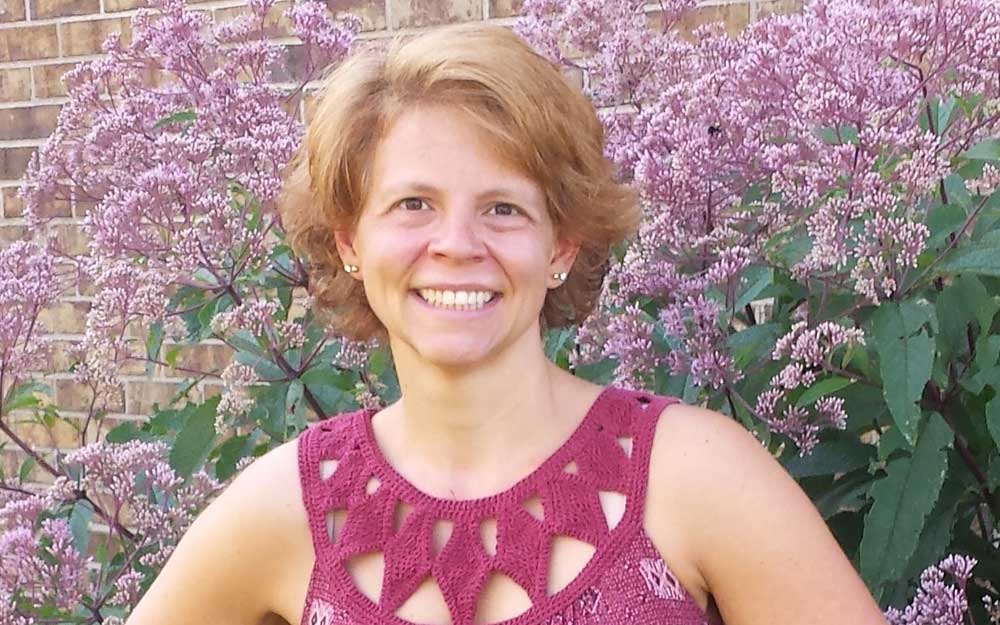“Initially we kept it quiet. We were kind of asking ourselves what we did wrong. We were embarrassed. And we were spending so much energy on making it look like everything was normal.”
Danielle recalls how her family first dealt with her daughter Gretchen’s obsessive compulsive disorder (OCD) diagnosis shortly after she celebrated her fifth birthday.
 “I remember not long after, we were sitting in a movie theater watching Frozen when the song ‘Let it Go’ came on, and I just started crying. I couldn’t hold it in anymore. We had to let go of all of this energy that we were putting into pretending everything was okay and instead use that energy to help her. There’s nothing wrong with having OCD and it doesn’t mean we did anything wrong,” Danielle shares.
“I remember not long after, we were sitting in a movie theater watching Frozen when the song ‘Let it Go’ came on, and I just started crying. I couldn’t hold it in anymore. We had to let go of all of this energy that we were putting into pretending everything was okay and instead use that energy to help her. There’s nothing wrong with having OCD and it doesn’t mean we did anything wrong,” Danielle shares.
Over the course of the next few years, OCD took the family in several directions—meeting with therapists, psychologists, and mental health treatment programs. The OCD had gotten so severe that Gretchen couldn’t touch the dishes or utensils during meals, be in the same room as a box of kleenex, or even hug her parents. It had completely interrupted the family’s life in all aspects.
“The road kept getting harder and harder,” says Danielle.
But then nearly four years after Gretchen’s diagnosis, a psychologist recommended a higher level of treatment through the residential Child Center at Rogers in Oconomowoc, Wisconsin—six hours from their home in Michigan.
In October 2017, Danielle and her family made the trek to Rogers. She describes the day they arrived for treatment with a word her daughter created: “exurvous,” combining excitement and nervousness.
“My heart was breaking and I was terrified. She knew as well as we did that she needed the help that Rogers could provide. Driving away that afternoon was one of the hardest things I’ve ever had to do. It felt like my heart was being ripped out of my chest. But we knew Rogers was our last chance.”
Consistent therapy and the right medications
One of the keys to Gretchen’s successful recovery was the consistent schedule of exposure response therapy (ERP).
“We were familiar with ERP from other treatment programs, but in her case, it needed more consistency for a committed amount of time for it to really make an impact. Gretchen was at Rogers for 11 weeks, whereas other treatment programs she had been in were for only a week at most.”
When someone has OCD, they experience obsessions and compulsions. An obsession is a feared, unrealistic situation that causes anxiety, and compulsions are repetitive behaviors used to reduce the anxiety brought on by the obsession. ERP helps people confront their obsessions and compulsions using exposure, which is gradual and repetitive exposure to feared thoughts, images, or impulses, and response prevention, which helps patients avoid the impulse to use a compulsive behavior.
The other key to her recovery was finding the right medication. Gretchen hadn’t been taking anything when she arrived at Rogers so the treatment team was able to evaluate where she was without medication. Then they were able to determine which medications matched Gretchen’s needs and increase the dosage much more quickly, taking only a few weeks versus the eight months it would have taken at home.
“We were getting our child back.”
“Driving back and forth to Wisconsin every weekend was exhausting but seeing the progress she was making was worth it. The first time we visited, she even gave me a hug and my heart burst! It had been so long. We were getting our child back.”
After Gretchen returned home from treatment, Danielle admits she was anxious at first about the transition and using the tools and therapies they learned, but that was short-lived.
“Now I put her on the bus just like a ‘regular’ kid,” says Danielle. “She still has to work harder at everyday life than any kid should have to, but she’s so much better! Rogers has shown us that with proper therapy, you can learn to live with OCD; we are forever thankful.”
She shared that not much triggers Gretchen’s OCD anymore, and if something does, she’s able to use her coping skills and the ERP she learned at Rogers.
Danielle is now focused on helping to reduce the stigma associated with mental health. “We need to expend our energy on helping those suffering from a mental illness have access to the proper resources, not ignoring it or being prejudiced. OCD is not an adjective. It’s a mental illness that robs precious time from individuals and their loved ones. For those that are in the same spot our family was, know there is hope.”
If you think that you or someone you know may have OCD or other mental health concerns, call 800-767-4411 for a free, confidential screening, or request a screening online.


